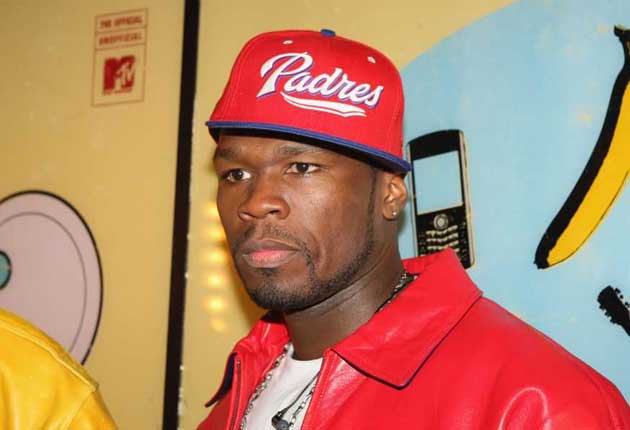How to get ahead in hip-hop
50 Cent's new book is a guide to making millions from music. And UK rappers are learning fast, says Matilda Egere-Cooper

Your support helps us to tell the story
From reproductive rights to climate change to Big Tech, The Independent is on the ground when the story is developing. Whether it's investigating the financials of Elon Musk's pro-Trump PAC or producing our latest documentary, 'The A Word', which shines a light on the American women fighting for reproductive rights, we know how important it is to parse out the facts from the messaging.
At such a critical moment in US history, we need reporters on the ground. Your donation allows us to keep sending journalists to speak to both sides of the story.
The Independent is trusted by Americans across the entire political spectrum. And unlike many other quality news outlets, we choose not to lock Americans out of our reporting and analysis with paywalls. We believe quality journalism should be available to everyone, paid for by those who can afford it.
Your support makes all the difference.It's no secret that DIY is the current business mantra within hip-hop circles, with old-guard rappers like Jay-Z steadily shaping up their empires by cutting out the middlemen and a cornucopia of newbies (Kid Cudi, Asher Roth, Drake) developing 101 ways to get the most mileage out of the internet. But as the recession continues to bite, artists have been forced to develop more creative business models – like Mos Def, who decided to promote his album The Ecstatic in June by selling T-shirts which featured a unique code to enable fans to download the album for free.
One imagines they may have taken a leaf out of The 50th Law, the hip-hop entrepreneur book penned by 50 Cent and business strategist Robert Greene. It is devised to give both budding and redundant rappers an insight into how the rapper made his millions. "He's a guy who's taken himself as an artist and managed to generate more products than quite possibly the music he actually releases," says Grouchy Greg Watkins, founder of the popular website allhiphop.com.
The book is the follow-up to Greene's ruthless 1998 manual, The 48 Laws of Power, a self-help tome which was referenced in rhymes by Beanie Sigel and Kanye West.
Other popular page-turners in hip-hop include The Art of War by Sun Tzu and translated copies of The Art of Worldly Wisdom by the 16th-century Jesuit priest Balthasar Gracian.
Watkins argues that by increasing their knowledge, rappers are taking more risks than ever before in order to survive. "A lot of these artists have been at the forefront of change for a while, especially when you look at the digital arena, the internet, ringtones, mobile phones, iphone applications," he says.
A case in point is Chali 2na (real name Charlie Stewart), a West Coast rapper formerly associated with Jurassic 5, an alternative hip-hop group who split in 2007. Stewart has decided to release his long-awaited debut this year, but he's also keen to kick off his first love – painting. "I've got a friend and he's a graffiti writer from the old school like me, and he changed his art into a nice business where he's selling paintings for $20-$30,000 a pop," says the 39-year-old. He's in the process of setting up the Entertainer's Artists gallery, an online portfolio.
British rappers are getting smarter too. It's widely accepted that in terms of the hip-hop business, rappers on this island are lagging ten years behind, but artists like Charlie Sloth are helping to buck the trend. The 27-year-old from north London has an online show, Being Charlie Sloth, where he documents the travails of getting ahead in hip-hop. The first series was picked up by Jumpoff.tv and the US's worldstarhiphop.com, where it pulled in excess of a million hits. He's set to launch the second series in September. "I definitely feel that the whole approach as an artist is changing," says Sloth.
There's also Bashy (real name Ashley Thomas), the Brit school-bred rapper/actor who started out at 16 alongside Wiley in the grime crew Pay As You Go, but released his overdue album Catch Me If You Can back in June. Now 24, he currently boasts his own fashion label and an endorsement deal with Skittles.
Only time will tell what other ventures rappers might consider. But whether it's launching a jewellery line like Estelle, signing up UK artists like Ne-Yo, or penning your own book of rules like Q-Tip, these savvy stars are increasingly aiming to put business first.
Join our commenting forum
Join thought-provoking conversations, follow other Independent readers and see their replies
Comments